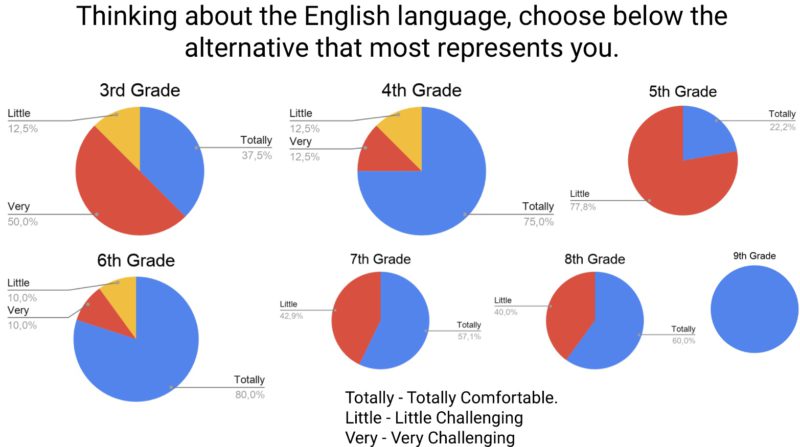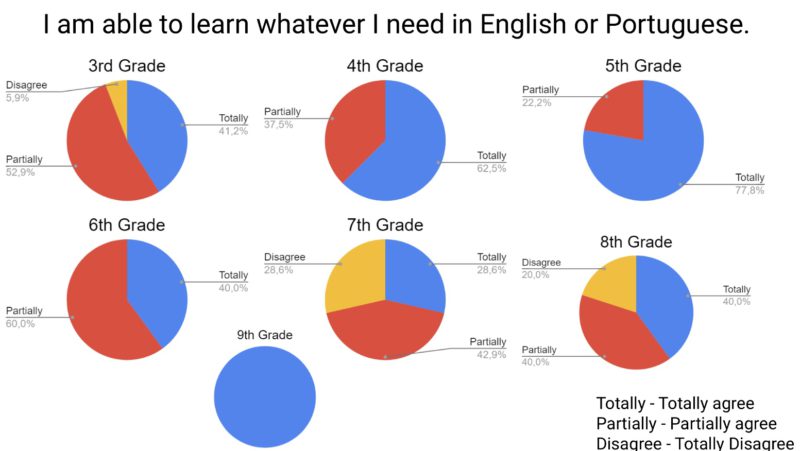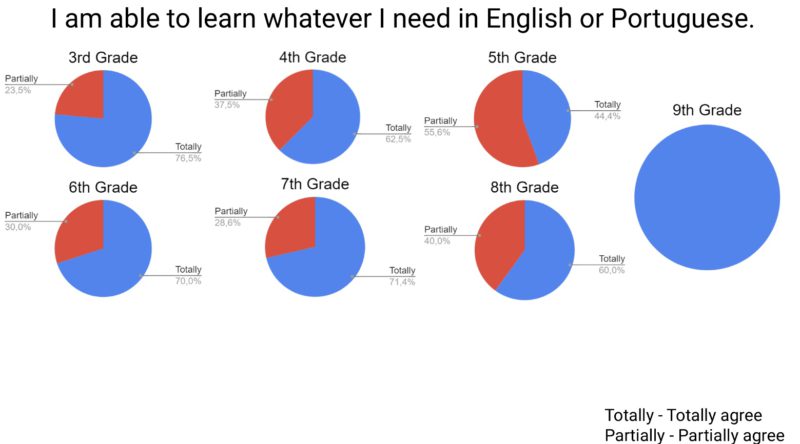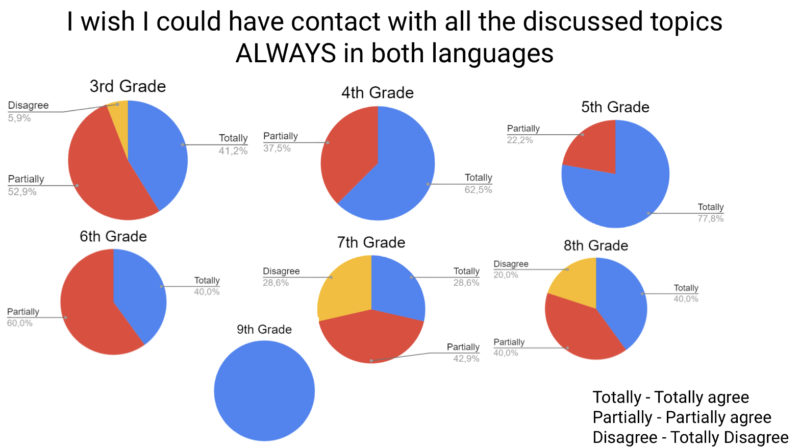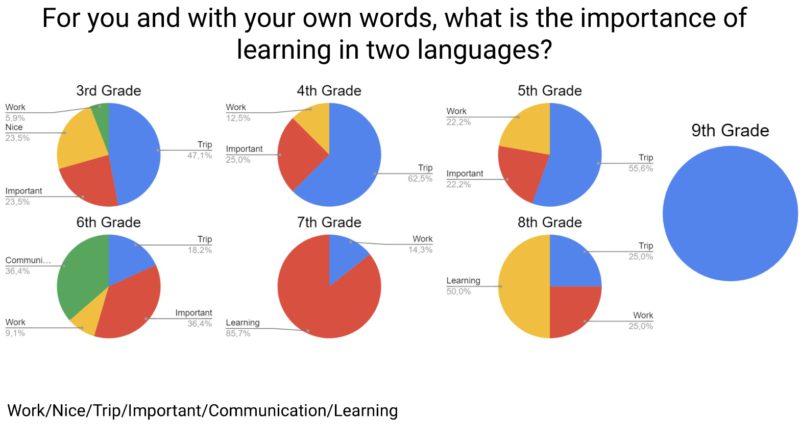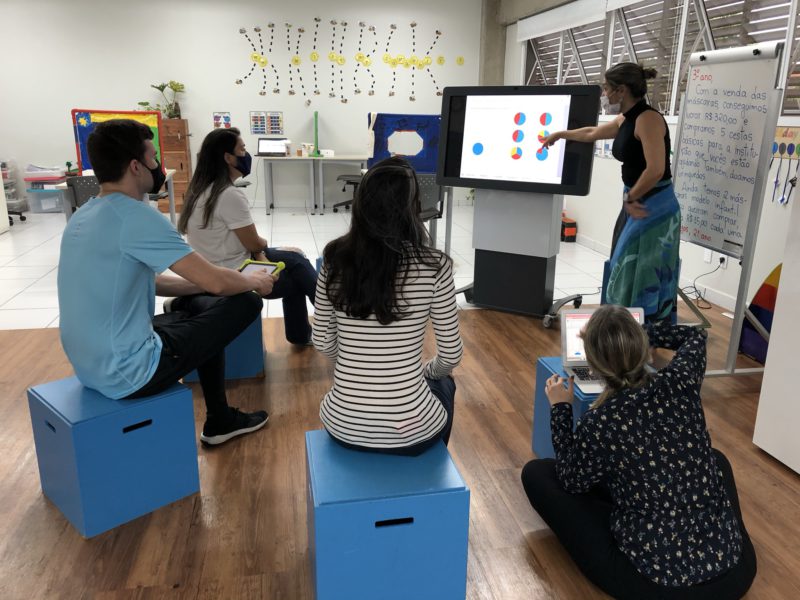Language fluency as a tool to open students’ learning horizons
How language can be used by students as a tool to approach to the learning object?
General topic of interest
Our main interest was to understand how our students fell about learning a second language and as well as understand about their fellings bout learning ON a second (or third) language, how challenging that can be and if this challenge keep them more engaged or if it is a barrier. At this moment our target is to understand their points of view that is going to be analyzed and future perspectives deigned.
Participants
Fifty-seven students from Grade 3 to Grade 9.
Data collecting approach
A form consisting of 5 questions was applied with students from grade 3 to grade 9. Then we analyzed the data obtained and made the necessary reflections on the research topic and hypotheses.
Data collecting example
We have made questions in order to understand our students' fellings about learning a second language and about learning ON a second language (in Middle School context, you must consider learn on 3 languages - Portuguese, English and Spanish)
Emerging results
We could observe that in the early years the language is more challenging than on the higher levels, however, it was not pointed as something that prevents their engagement, actually, they said that "other things" have the same importance to keep them motivated. Progressivelly, we can clear observe that "it doesn't matter the language to keep (or not) their engagement. We also notice the language barrier is not something relly meaningful for more then one year! When we find higher levels with this kind of complaint there is a match with groups that we have new students, which did not have too much contact with English/Spanish before.
Reflections
As teachers we concern about challenging our students enough to provide learning, but not hard enough to provide a stressful environment, as well as we also want to think strategies to help them with language skills, since it is a tool to approach students to the learning object.
Next steps
We would like to make connections with the MAP test results in order to find correlations between both results and propose strategies to improve our students learning.





